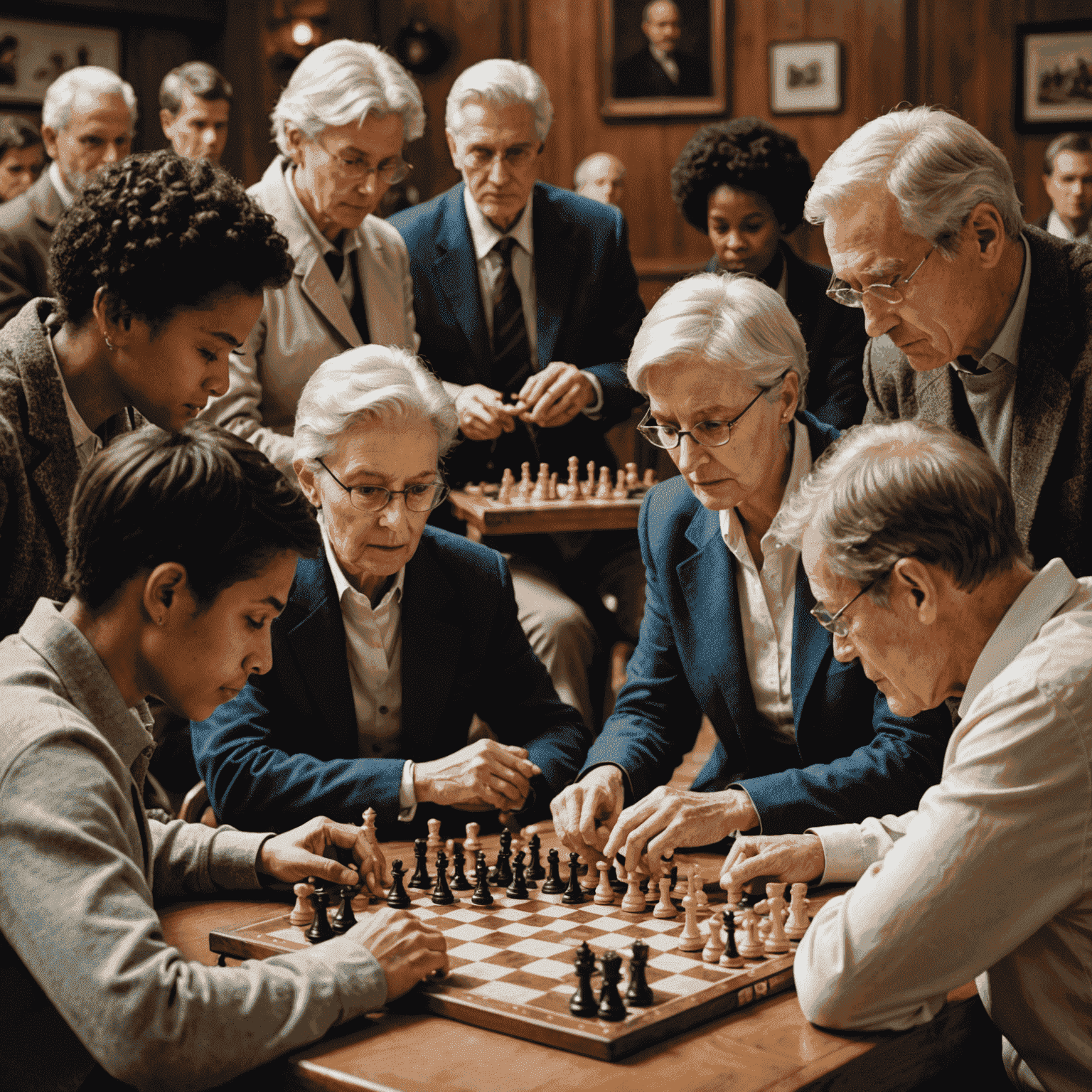The Power of Strategy: Chess and Cognitive Development

Chess, often referred to as the "game of kings," has long been recognized for its ability to enhance problem-solving skills and strategic thinking in players of all ages. This ancient board game offers far more than mere entertainment; it serves as a powerful tool for cognitive development and mental acuity.
Enhancing Problem-Solving Skills
Chess presents players with a complex array of possibilities in every move. Each decision requires careful analysis of the current board state, anticipation of the opponent's potential responses, and the formulation of long-term strategies. This constant problem-solving exercise helps develop:
- Critical thinking abilities
- Pattern recognition
- Spatial reasoning
- Decision-making under pressure
These skills, honed through regular chess play, often translate into improved problem-solving capabilities in real-life situations, benefiting players in academic, professional, and personal spheres.
Fostering Strategic Thinking

Strategic thinking is at the heart of chess. Players must:
- Develop long-term plans
- Adapt to changing circumstances
- Manage resources (pieces) effectively
- Anticipate and counter opponent's strategies
This strategic mindset cultivated through chess can be applied to various aspects of life, from business planning to personal goal setting. The ability to think several moves ahead and consider multiple outcomes is a valuable skill in our complex, fast-paced world.
Cognitive Benefits Across Age Groups
The cognitive benefits of chess are not limited to any particular age group. Studies have shown positive effects on:
- Children: Improved concentration, academic performance, and creativity
- Adults: Enhanced memory function and problem-solving skills
- Seniors: Potential delay in cognitive decline and improved mental sharpness
Chess's ability to engage players in complex cognitive tasks while providing an enjoyable experience makes it an ideal activity for lifelong learning and mental fitness.
Conclusion
As we continue to recognize the importance of cognitive skills in our increasingly complex world, chess stands out as a powerful tool for enhancing problem-solving and strategic thinking abilities. Whether you're a seasoned player or a beginner, engaging in this timeless game can offer significant benefits to your cognitive development and overall mental acuity. So why not set up a board and start reaping the mental rewards of this fascinating game?